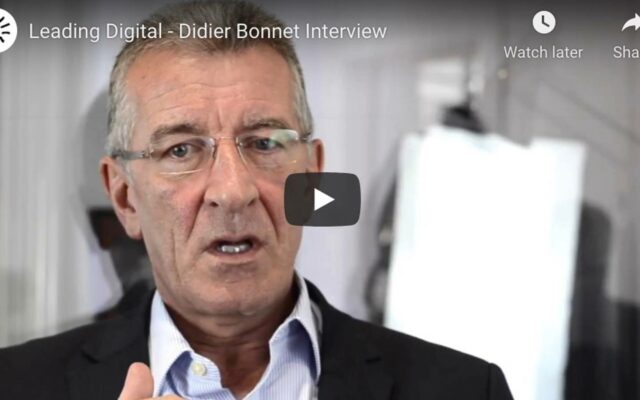5 years ago a few companies were progressing well with digital transformation whilst others even questioned the need for it. Today everyone has launched some form of digital transformation.
1:00 the difficulty of digital transformation has increased.
New technologies AI, IOT mean more possibilities and complexity
1:54 there is a polarisation between those companies who have mastered digital transformation and continue experiment and adopt this technology very effectively whilst others still struggle with the basics – people, competence and organisation.
2:29 progress has been made in customer experience (data, engagement and experience design)
2:55 much less progress made in operations mainly due to complexity fo example with IOT and predictive maintenance applications.
3:34 business models and disruption – very few companies are able to balance the needs of business as usual with scaling new business models.
4:16 the impact of start ups on disruptions, incumbents response, ecosystems of collaboration
5:05 the WHY of digital transformation has become much more obvious – even more compelling particularly in the face of changing consumer expectation and habits.
6:13 the WHAT – mastering technology to manage the customer experience and to create new value through the consensual exchange of data
7:29 when to regulate
7:40 the emergence of design as a key factor in world class customer experience
8:10 prediction of a lot more activity in operations around automation, AI and particularly machine learning
8:36 changes in operating models – technology will have a huge impact on operation and the role of the human in the workforce.
9:05 implications for the future of work and the skill sets required to work in a completely automated environment
9:31 business models – shift to platforms and ecosystems – complex to do and companies are struggling
10:28 the HOW – vision and engagement still crucially important and some way to go – important to manage people issues and train effectively
11:34 the relationship between the technology side of the business and the business side – agile and collaboration working well for ideation to MVP but the scaling is still a huge issue.
12:37 competencies and people – all companies are struggling with the lack of very specific skills (
e.g.data scientists, digital marketing, cloud etc)
13:34 – too few companies putting in programmes to address reskilling issues – either for general digital IQ, specific technical skills or working with new processes in new environments.
14:14 massive changes in jobs, nature of work will change radically
14:50 scarcity of skills will mean that companies have to figure out new ways of accessing them – eg managed services
15:33 HR will need to become more connected and involved in the business if these challenges are to be addressed
16:06 – MIT research – relationship with customer is becoming much more collaborative both physically and from an agreement about the exchange of data.
17:00 for the operations side it’s all about the automation – unclear how this will be achieved exactly
17:20 business models – leadership is important to enable people to manage the business today as well as build the model for the future .



